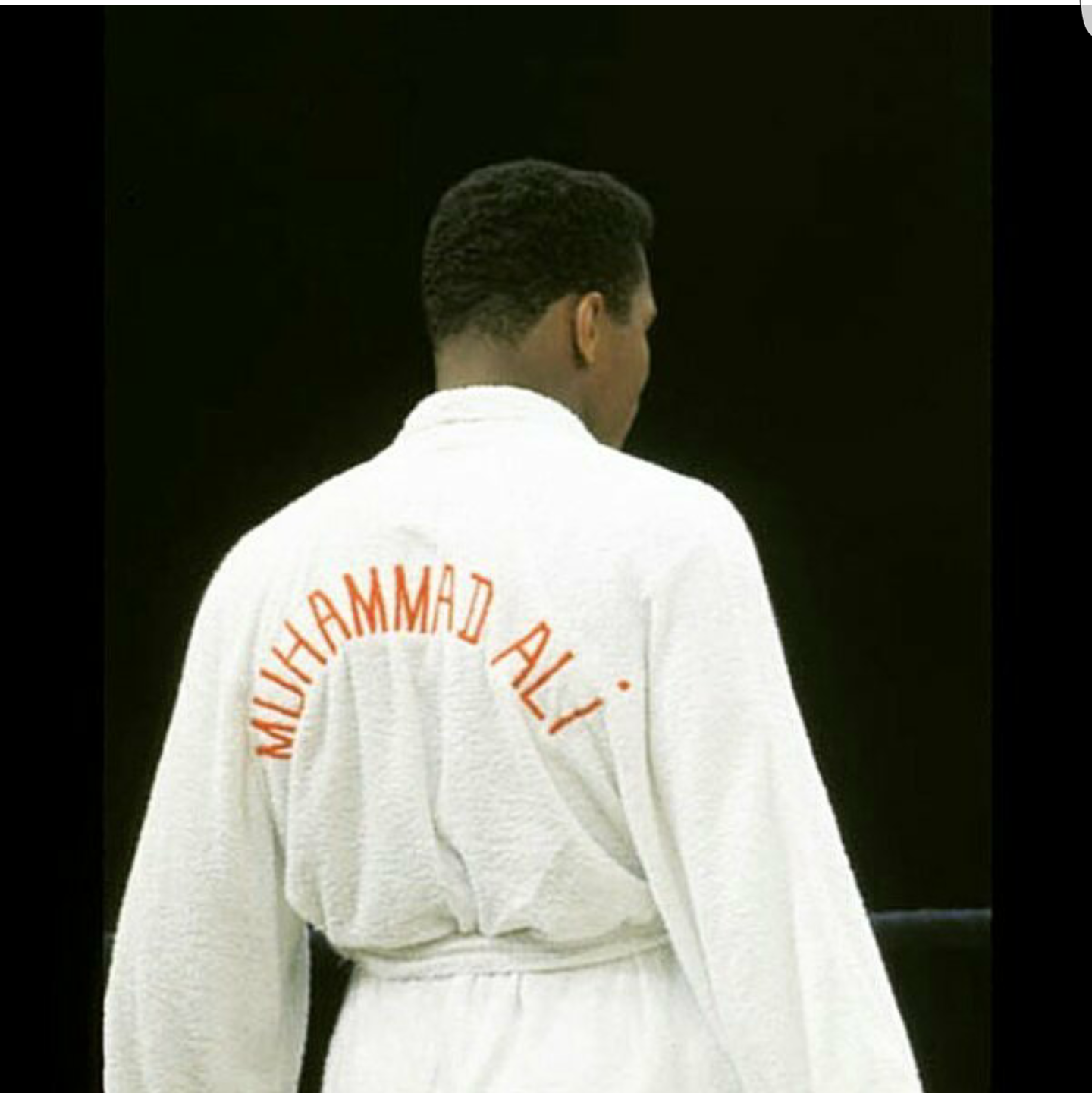
A small tribute to a great boxer – Muhammad Ali RH
THE LOUISVILLE LIP
Cassius Clay Sr. gifted his son a new red-and-white Schwinn in 1954, which was promptly stolen. The 12-year-old, 89-pound Cassius Clay vowed “I’m gonna whup whoever stole my bike!” A policeman, Joe Martin, told young Cassius Clay that he better learn how to fight before he challenged anyone. After 6 months of training with Joe Martin, Cassius won his debut match in a three-round decision. Young Cassius Clay dedicated himself to boxing and training with an unmatched fervor. According to Joe Martin, Clay set himself apart by two things: He was “sassy,” and he outworked all the other boys.
“BOXING WAS JUST A MEANS TO INTRODUCE ME TO THE WORLD”
Muhammad Ali participated in the light-heavyweight class Golden Gloves tournament for novices in 1956. It took him three years, but finally in 1959, Ali was named Golden Gloves Champion and earned the Amateur Athletic Union’s national title in the light-heavyweight division.
Shortly after his high school graduation, 18 year-old Cassius Clay began his journey towards greatness at the 1960 Rome Olympics. His expansive personality and larger-than-life spirit earned him the nickname “The Mayor of Olympic Village.”
The future 3-time Heavyweight World Champion nearly missed the trip to Rome due to his fear of airplane travel; he insisted on bringing a parachute on the plane with him.
On September 5, 1960, “The Greatest” proved his dominance in the Light Heavyweight Boxing Division by beating Zigzy Pietrzykowski of Poland, capturing the Olympic Gold Medal. Sports Illustrated praised Clay’s “supreme confidence” and “intricate dance steps.”
“IT’S A LACK OF FAITH THAT MAKES PEOPLE AFRAID OF MEETING CHALLENGES, AND I BELIEVE IN MYSELF”
— Ali, on beating Foreman in Zaire
When Muhammad Ali refused to enter the Vietnam War draft he was stripped of his championship titles, passport, and boxing licenses. He lost an initial court battle and was facing a 5-year prison term. Muhammad Ali was the first national figure to speak out against the war in Vietnam. During his 3 ½ year layoff, Ali earned a living speaking at colleges. In 1970, with the mood of the country changing, Ali staged his comeback; first against Jerry Quarry in Atlanta, and then Oscar Bonavena at Madison Square Garden. In his next match, billed as “The Fight of the Century”, Ali faced undefeated Champion, Joe Frazier at Madison Square Garden on March 8, 1971.
Ali fought valiantly, but lost. Months later, however, he won one of the biggest fights of his life – the Supreme Court reversed his conviction and upheld his conscientious objector claim. Ali was free of the specter of prison, and once again able to box anywhere in the world.
“THE MORE WE HELP OTHERS, THE MORE WE HELP OURSELVES”
“MY NAME IS MUHAMMAD ALI”
While training for his title bout against the fearsome heavyweight champion, Sonny Liston, Cassius Clay met Malcolm X. Malcolm became young Clay’s mentor and brought him into the Nation of Islam. Despite the 7-1 odds, Clay defeated Sonny Liston in Miami and became Heavyweight Champion of the world in 1964. Shortly after, he announced to the world that he was a member of the NOI and that his name was now Muhammad Ali. Weeks later, Malcolm X left the NOI and their friendship ended. Howard Cosell was one of the few journalists who acknowledged Ali’s name change at the time.
In 1984, Muhammad Ali publicly announced that he had Parkinson’s disease, a degenerative neurological condition. Following his diagnosis, he created and raised funds for the Muhammad Ali Parkinson’s Center in Phoenix, Arizona.
I know where I’m going and I know the truth, and I don’t have to be what you want me to be. I’m free to be what I want.
“HE WHO IS NOT COURAGEOUS ENOUGH TO TAKE RISKS WILL ACCOMPLISH NOTHING IN LIFE”
